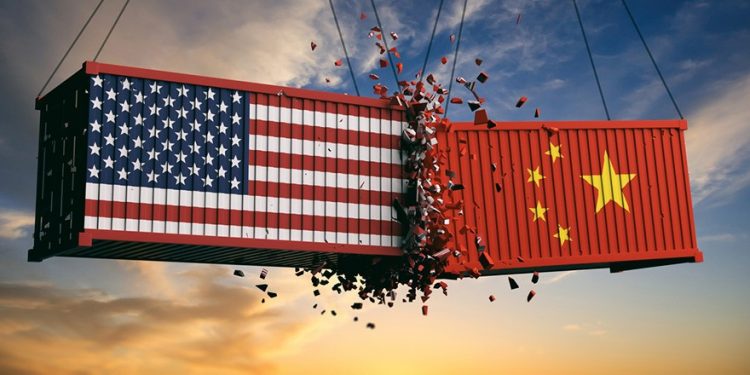China has introduced tough new laws which restrict the export of “controlled items.”
The rules primarily focus on the export of military technologies and other products that might harm China’s national security.
The export controls are widely believed to be in response to similar actions by the US.
TikTok, Huawei and Tencent are among the casualties of Washington’s Chinese technology crackdown.
There are concerns the new regulations, which came into effect on Tuesday, could escalate the ongoing trade war with the US.
Trade tensions between the world’s two biggest economies began in 2018 but have ramped up this year.
Tech cold war
President Donald Trump’s administration has introduced executive orders against a range of Chinese firms arguing they could share data with the Chinese government.
China’s new export laws are “a reaction to this escalation of the tech war and it’s China looking to cover its own advantages”, said Alex Capri, visiting professor at the National University of Singapore.
Speaking on BBC’s Asia Business Report, Mr Capri added: “The other thing I find really interesting is China has placed AI and algorithms under these export controls.
“This was prompted by the US ban on TikTok. The Chinese government does not want to share this AI.”
Mr Capri believes the ongoing trade war between the US and China will follow the “same trajectory” under Joe Biden. “We’re in a cold war with China – it’s a tech cold war,” he said.
What do the new laws do?
The Export Control Law establishes several categories of “controlled items”, which include nuclear, military items and “dual use” items that can be used for both civilian and military purposes.
The law also covers items that are considered vital to the protection of China’s national security.
Exporters must apply for a license in order to export any item listed on a control list or subject to temporary controls.
Data associated with the controlled items is also covered by the law.
The law imposes penalties of ten times the value of the offending transaction up to $760,000 (£569,000).
It also allows for the punishment of overseas organisations or individuals, suggesting Beijing might attempt to use it to restrict the sale of sensitive technology globally.
Rare earth
Prices for rare earth minerals have increased in anticipation that the law could affect their export.
China is the world’s biggest supplier of rare earth minerals, which are used in products ranging from consumer electronics – like smart phones – to wind turbines.
“China has a massive overwhelming advantage when it comes to rare earths,” said Mr Capri. “Essentially, over the past 30 years, the ability to extract rare earths lies with China. It’s going to be hugely important when it comes to jet fighters, automotive, etc.”








